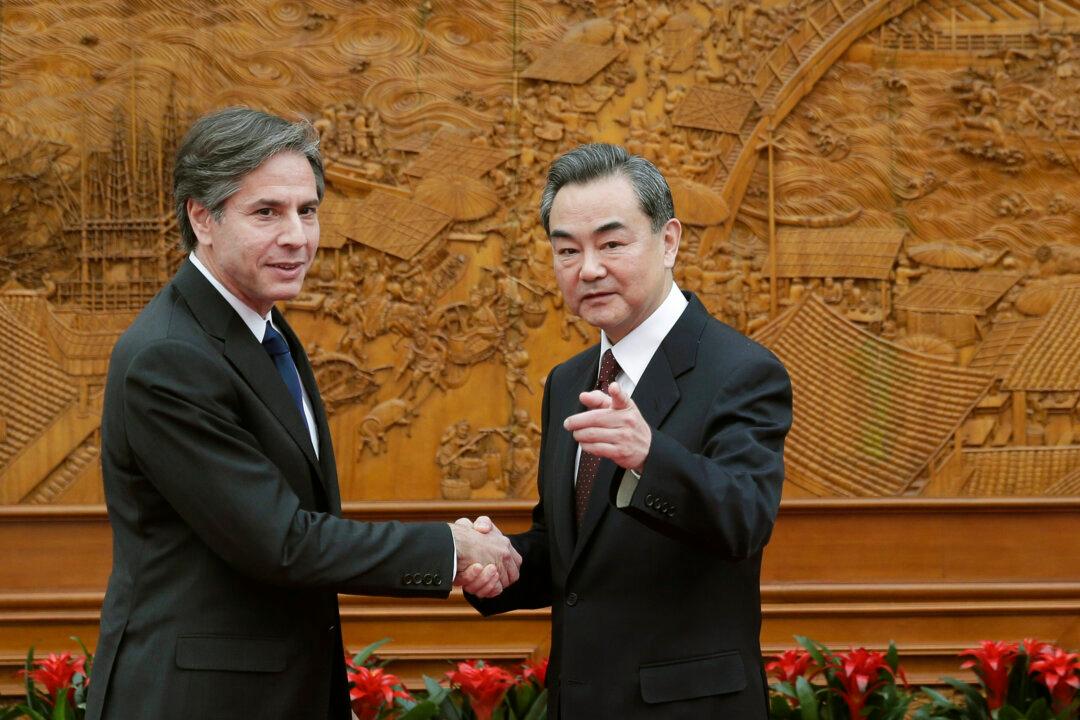U.S. Secretary of State Antony Blinken put pressure on China over the Ukraine crisis on March 5, telling his Chinese counterpart that the “world is watching,” amid Beijing’s continued refusal to condemn Russia over its military aggression against its neighbor.
Blinken made the remark during a phone call with Chinese Foreign Minister Wang Yi. According to a statement, the two discussed what the State Department called “Moscow’s premeditated, unprovoked, and unjustified war against Ukraine.”





